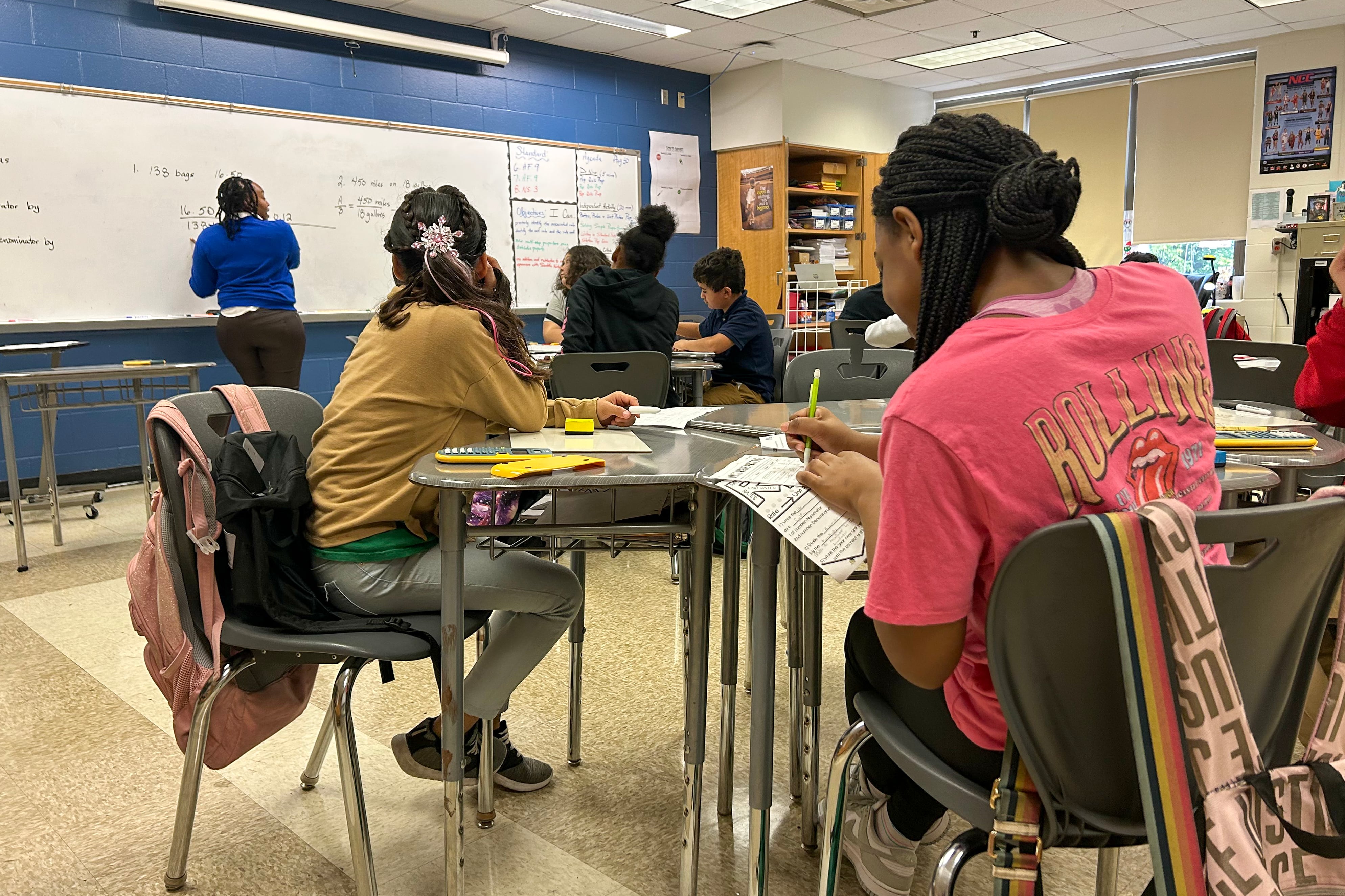Sign up for Chalkbeat Indiana’s free daily newsletter to keep up with Indianapolis Public Schools, Marion County’s township districts, and statewide education news.
The Indianapolis Public Schools board unanimously approved a new two-year labor contract on Tuesday that gives teachers an average of 3% in raises plus more time off.
The contract, which Indianapolis Education Association members voted to ratify last month, bumps starting pay in the district from $50,400 to $51,900 in 2023-24, and raises it again to $53,460 in 2024-25. Current teachers can also increase their base salary based on their educator evaluation ratings, their years of service in IPS, and whether they serve in high-need subject areas.
Those pay increases range from $1,850 to $2,790 for 2023-24, and $1,900 to $2,870 for 2024-25. Teachers who were rated as ineffective or needing improvement, however, are not eligible for an increase.
Teachers will also receive two floating holidays each academic year that can be used at their discretion. These holidays are designed to benefit those employees whose religious holidays are not recognized on the traditional school calendar.
The agreement, heralded by both IPS and the IEA as a positive collaborative effort, will guide compensation and bonus pay at a critical time for the district, which will shift teachers to different schools next school year when IPS breaks up its K-8 schools.
“I’m extremely proud of the agreement that we were able to build together by working collaboratively to find solutions to the fiscal and logistical obstacles that we face as a district,” Tina Ahlgren, the bargaining chair for the IEA, said at the meeting.
A new pilot program in the contract will allow teachers to receive additional pay if they are forced to give up their preparation periods to cover for an absent teacher in another class. Teachers can receive $25 per hour under this new provision.
Teachers can also receive that extra pay if principals increase their class size by at least 30% because of another teacher’s absence.
“We are both proud of and grateful for the collaboration that we’ve had with our partners at IEA to get to this point this evening,” Superintendent Aleesia Johnson said at the meeting. “Thank you to the team, both the bargaining team as well as my administrative team, who really did engage in this deep collaboration, positive conversations and discussion.”
The contract also provides new pay for staff who serve as certified school psychologists, social workers, or teachers of English as a new language.
Teachers who are approved to serve as long-term substitutes in addition to their regular teaching roles can also get additional compensation under the new contract.
The contract increases the payout for unused sick time that teachers can cash out upon retirement, from $35 for every seven hours to $50. That payout had not changed in over 15 years.
The district, however, will no longer pay for long-term disability insurance. Teachers can opt in to the insurance but will pay premiums on their own.
Amelia Pak-Harvey covers Indianapolis and Lawrence Township schools for Chalkbeat Indiana. Contact Amelia at apak-harvey@chalkbeat.org.








